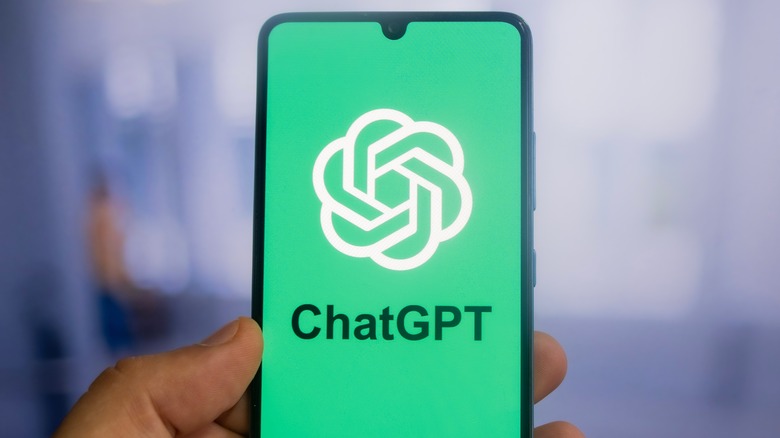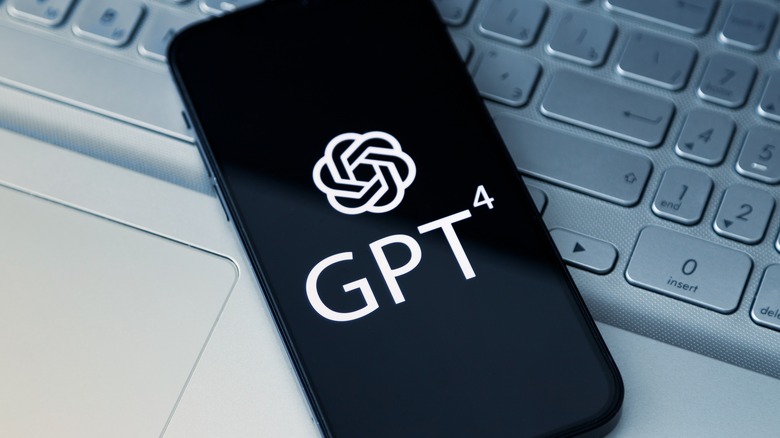What Does GPT Stand For In ChatGPT?
Whether we like it or not, artificial intelligence is becoming more prevalent in our world. From apps that can generate AI images to those that can spout everything from text messages to terms papers, the technology is advancing at a rapid pace. Within the past few years, a handful of companies have emerged as the foremost AI development hubs, with OpenAI standing out as one of the best-known. One of the prime reasons it has become so famous is thanks to its virtual assistant with several unexpected uses you'll want to try out, ChatGPT, which is used by countless people worldwide. Still, many don't know what the GPT in ChatGPT stands for.
For those curious about this aspect of the name, it's far from a secret. GPT stands for Generative Pre-Trained Transformers, which are crucial elements in the AI generation process. Generative Pre-Trained Transformers are large language models that act as a group of artificial neural networks based on transformer architecture. These allow AI applications the ability to generate images, text, music, and more in a human-like way. OpenAI introduced GPTs in 2018 and have since greatly expanded on the initial concept, significantly improving their efficiency and the quality of their output. Unsurprisingly, OpenAI isn't the only AI-focused company to utilize GPT technology.
Generative Pre-Trained Transformers have effectively become the standard
As AI and programs utilizing them have taken center-stage, Generative Pre-Trained Transformers have effectively become the standard for companies exploring AI. For instance, EleutherAI used GPT-3 to create the open-source GPT-J in 2021, and in 2023, Cerebras Systems launched seven GPT-based LLMs for open use. Even other businesses outside of the AI sphere have made use of this tech. Duolingo — yes, the language learning platform — has created Duolingo Max as part of a new learning experience using GPT-4.
While this implementation of the technology is all well and good for those involved and the ones using it, OpenAI hasn't been particularly happy about other companies using the GPT name. Since 2023, OpenAI has made it known that it disapproves of others using the GPT term in their branding, threatening "enforcement mechanisms" if they continue to do so, according to The Business Journals. Thus, OpenAI has attempted to go through the United States Patent and Trademark Office to trademark GPT, but its efforts have proven unsuccessful. The term has been determined as too broad and generic for any such trademark to be valid.
With so many brands and technologically-skilled individuals looking into them, it stands to reason that Generative Pre-Trained Transformers will only continue to become more prevalent and advanced in the coming years. Let's just hope that none of the possible nightmare scenarios that could happen with current generation AI will come to pass in the process.

